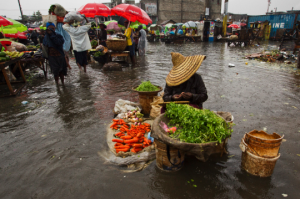 Our world as we know it is quickly changing (but of course you didn’t need me to tell you that). Around the globe, temperatures are rising, storms are increasing in severity, and droughts are becoming more frequent – all as a result of climate change. It goes without say that developing nations are the most vulnerable because they stand to lose the most.
Our world as we know it is quickly changing (but of course you didn’t need me to tell you that). Around the globe, temperatures are rising, storms are increasing in severity, and droughts are becoming more frequent – all as a result of climate change. It goes without say that developing nations are the most vulnerable because they stand to lose the most.
The degree to which the effects of climate change occur is different for every country as it is dependent upon the geographical location, social, political, and economic implications. Thinking back to October 2012, when Hurricane Sandy decimated the east coast of the United States, there was an infrastructure system set up to handle the effects of the hurricane. For example, there was significant media coverage, with local government officials informing people what to do and where to seek help. Also, FEMA (the Federal Emergency Management Agency) stepped in and helped out as it could. There were clean up initiatives, food drives, and shelters for people to turn to. For those living in developing nations, where there are fewer resources, they do not recover as quickly.
 When it comes to climate change, developing nations are experiencing two extremes- fluctuating between dry spells and severe storms. While in Haiti this past March, I watched as the people feared for their crops because it had not rained in months. The ground was dry and the sun was unrelenting. Without their crops, they have nothing to eat or sell. It goes without say that this is devastating for business and certainly difficult for the people. On the other hand, Hurricane Isaac destroyed 40 percent of Haiti’s harvest last August and it didn’t help that Sandy destroyed 80 percent of what remained before making her way up north. Therefore, when severe weather strikes and the environment takes a huge hit, this means higher prices on merchandise and for the developing nation, a loss of income.
When it comes to climate change, developing nations are experiencing two extremes- fluctuating between dry spells and severe storms. While in Haiti this past March, I watched as the people feared for their crops because it had not rained in months. The ground was dry and the sun was unrelenting. Without their crops, they have nothing to eat or sell. It goes without say that this is devastating for business and certainly difficult for the people. On the other hand, Hurricane Isaac destroyed 40 percent of Haiti’s harvest last August and it didn’t help that Sandy destroyed 80 percent of what remained before making her way up north. Therefore, when severe weather strikes and the environment takes a huge hit, this means higher prices on merchandise and for the developing nation, a loss of income.
Climate change, without a doubt, affects everyone – those of us in more developed countries and developing alike. Knowledge of how to best handle and adapt to a changing climate is ever evolving and for sure good planning, one that takes into account sustainable development, is essential. Climate change adaption and implementation needs to be taken more seriously at the policy level where accountability and measurements can aid in carrying it out more effectively while also working with communities to take on this emerging everyday reality.


About The Author: Tendo Sekiwala
More posts by Tendo Sekiwala